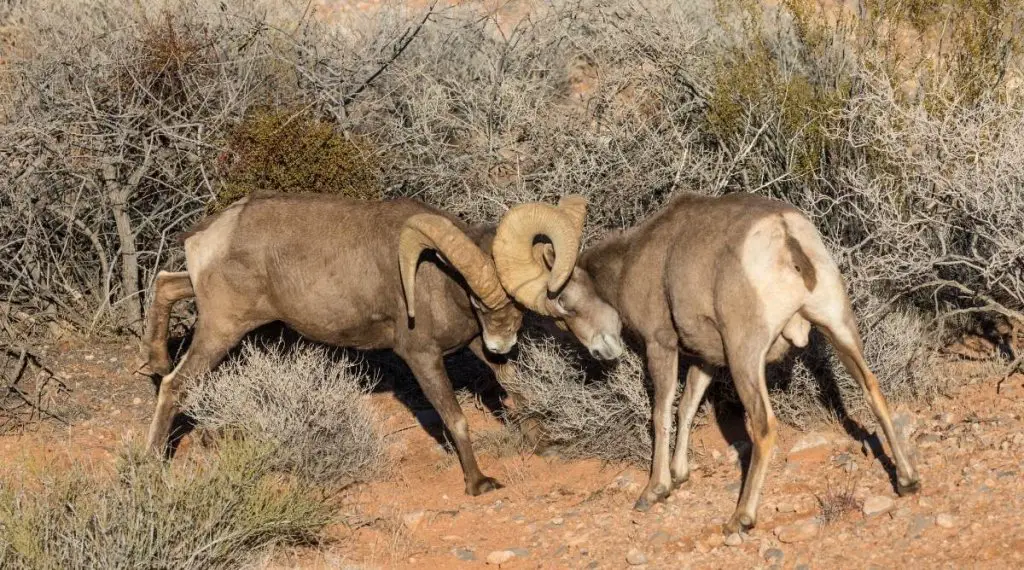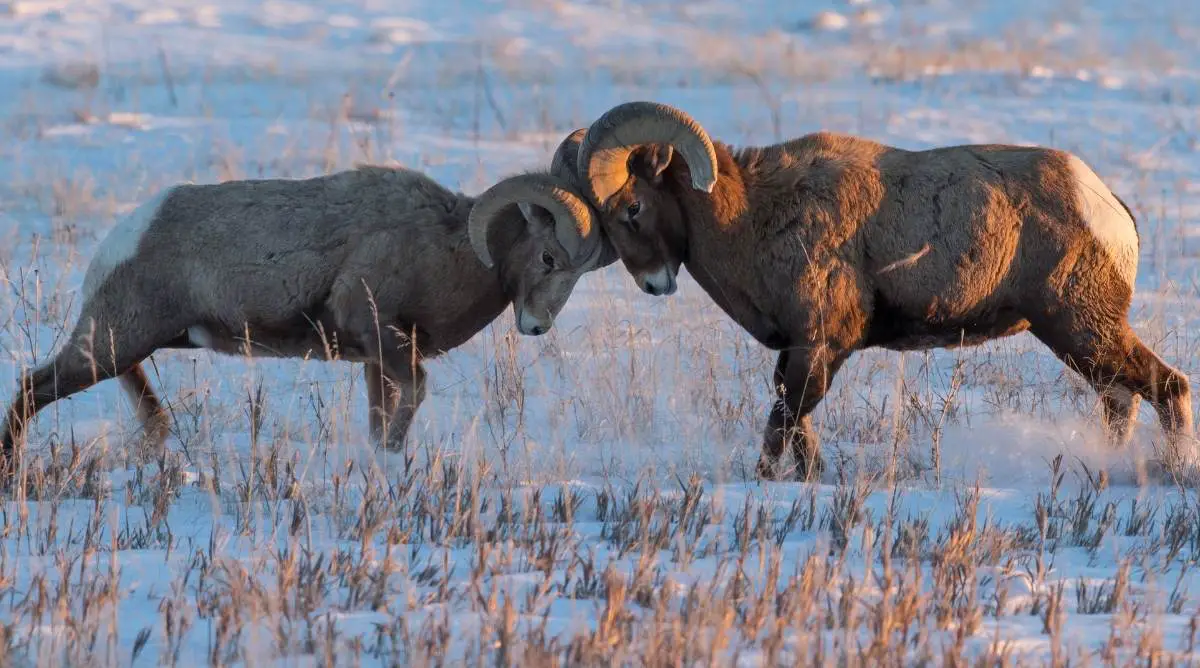Sheep are non-aggressive animals. Although rams and ewes with lambs can be aggressive at times, they generally prefer to flee and avoid conflict. However, they can be aggressive when threatened or cornered, and during breeding season.
Table of Contents
Do sheep attack humans?
Typically, sheep would rather keep their distance or flee than attack humans.
When attacks happen, it’s usually due to stress, a threat, or an unpleasant environment. Sheep can turn hostile if they are trapped or treated badly.
Signs of aggression in sheep
Sheep body language can reveal whether they are feeling cornered or under threat. You can tell whether to keep your distance based on how they’re behaving.
A few signs of aggression in sheep:
- Pawing the floor
- Charging
- Tugging at clothing
- Growling
- Headbutting
- Jumping as you approach
- Intense head shaking
- Attempting to bite
When sheep get aggressive, step carefully backwards. Don’t turn your back on them.
What do you do when a sheep attacks you?
If a sheep attacks, step carefully backwards and don’t turn your back on the sheep. Do your best to move to a safe space.
If you’re not able to run, throw your arms open and yell in order to make yourself appear bigger and more dominant.
Take measures in advance to reduce the likelihood of a sheep attack in the first place.
Having a sheepdog is a good way to help prevent sheep attacks, since sheep are afraid of them.
You can also reduce the likelihood of an attack with your own behavior. For example, avoid making extended eye contact. This can be seen as a sign of aggression. Additionally, you want to stand taller than the sheep so that they must lift their faces to look at you. You should also never put yourself in the way of a sheep and its lamb.
Aggression in ewes vs rams

Rams are more hostile and possessive than ewes. They will naturally contend with other males for dominance and the right to mate. Kicking, biting, and locking horns are all part of challenges, which come to an end when the loser gives in. The biggest males with the biggest horns are rarely challenged.
Ewes are passive and don’t fight for dominance like rams do. They are more likely to run away from a predator. But high-ranking females will confront a predator to defend the flock of sheep. If they have horns, they will use them to stomp the ground, kick, and bite. They can also become aggressive to protect their lambs.
5 tips to keep your sheep docile
Some circumstances make it more likely that sheep will become aggressive.
Avoid these situations in order to help keep your sheep docile:
- Be cautious around breeding season: During breeding season, rams become more aggressive. In general, ewes are also more aggressive while around their lambs. Ewes’ natural tendency to flee can make them dangerous as well, as the entire flock may stampede.
- Don’t treat ram lambs as pets: Rams that have frequent human contact may lose their fear of people. If ram lambs are primarily raised around humans instead of other sheep, they’ll be socialized differently. When raised as pets, rams may lose their fear of people. They can turn antagonistic and might even fend off their human caretakers. Instead, castrated male rams (wethers) are a better option for pets.
- Be careful with loud sounds: Sudden loud noises, like yelling or barking, scare sheep. They may run away or defend themselves in response to screams and canine barks in particular. The handler should speak quietly and calmly to reduce stress.
- Don’t corner a sheep: Sheep have a safe area, known as a flight zone. They will flee if you enter their flight path. A sheep may turn hostile if it is unable to run. A frightened sheep may try to attack you to get away. It’s better to be in an open space—like a field or sheep farm—when you’re close to sheep. Another option is to move the animal into a smaller pen so that it will be simpler to handle. Separation from the flock can make sheep anxious as well.
- Don’t touch a sheep’s head. It is not a sign of love to rub sheeps’ heads. Domestic sheep will regard it as an aggressive behavior, since sheep headbutt each other to communicate and establish hierarchy.
Coexisting peacefully with your sheep
Sheep are generally quite peaceful animals, but can become aggressive when provoked. But by learning their behavior, you can avoid dangerous situations.
Avoid touching their heads, cornering them, creating loud sounds, treating ram lambs as pets, and being incautious during breeding season, and you’ll be well on your way to a peaceful coexistence with your sheep.

